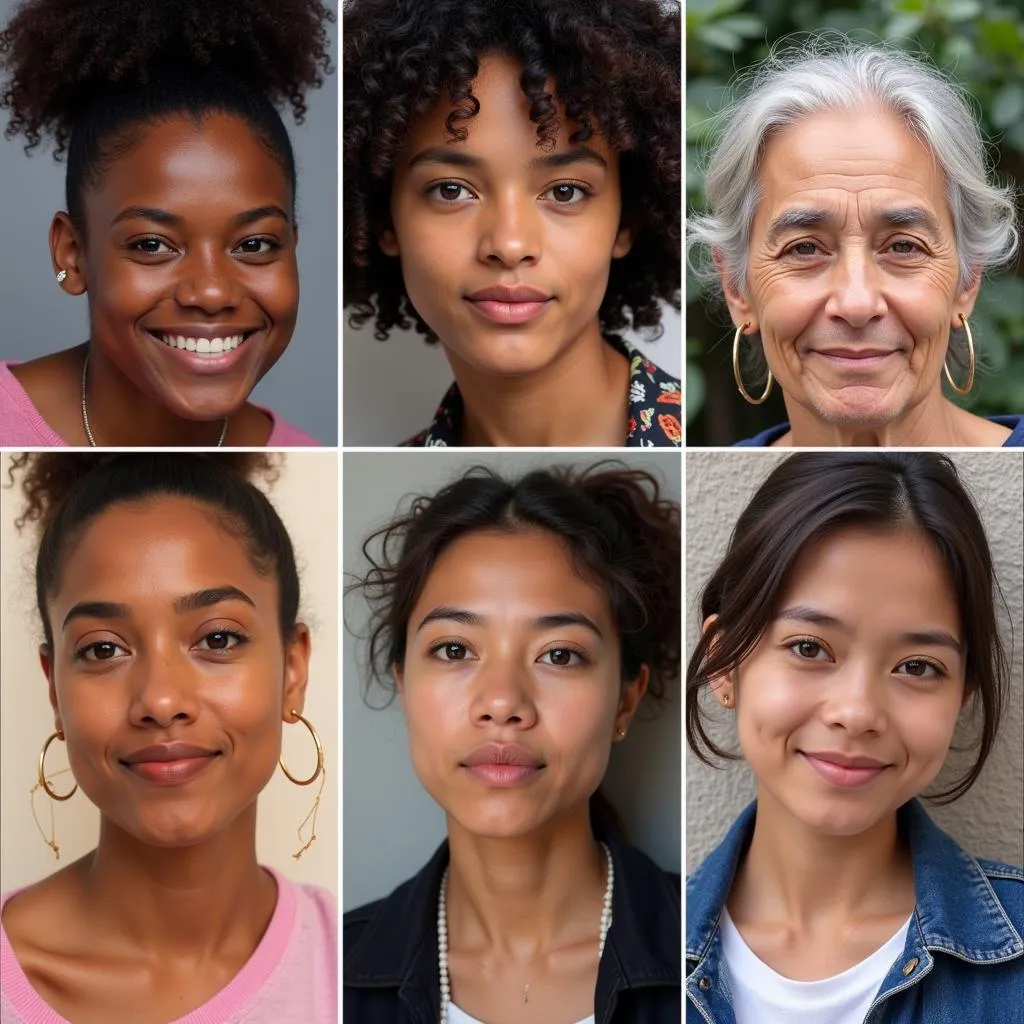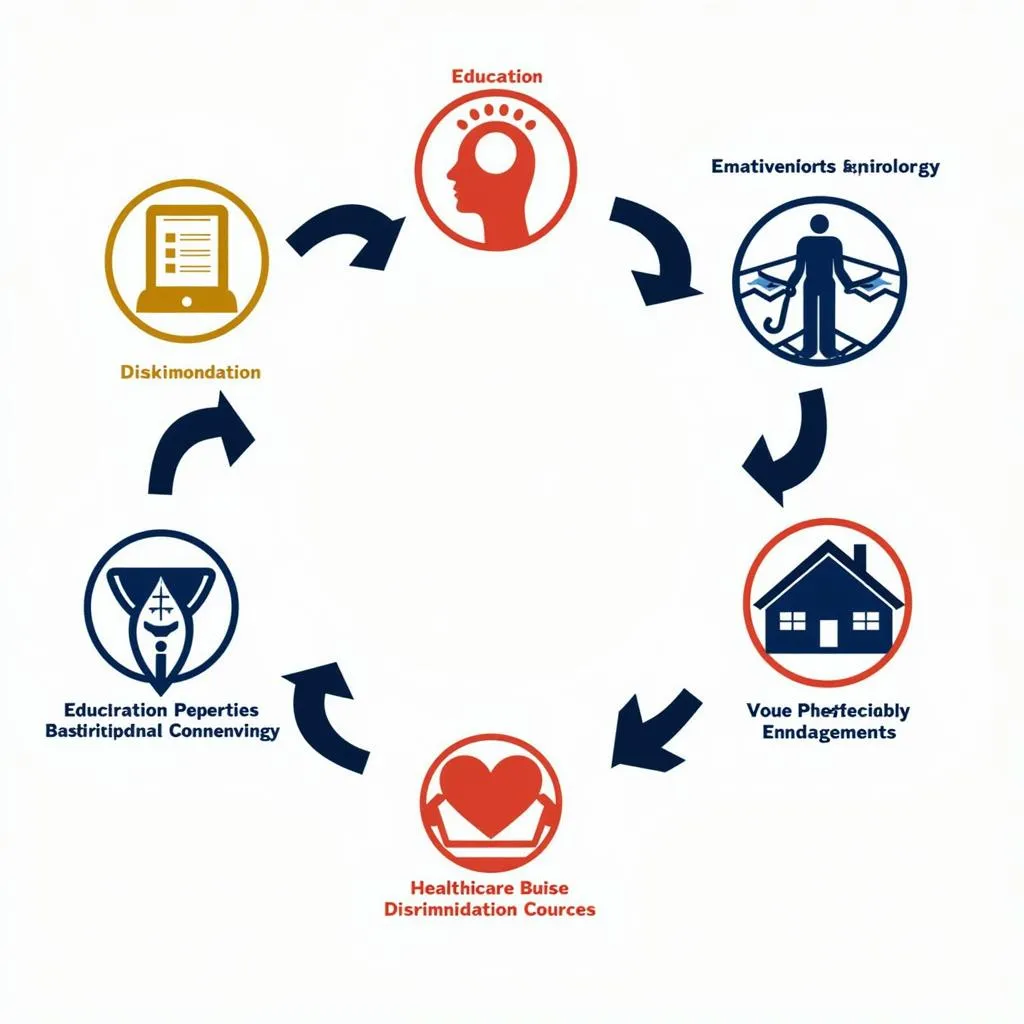The phrase “an American society of marginalization” speaks to a stark reality: despite its claims of equality and opportunity, the United States continues to grapple with deeply rooted systems that relegate certain groups to the fringes. This marginalization manifests in various forms, impacting individuals and communities across the nation. From economic disparities and unequal access to education and healthcare, to systemic racism, discrimination based on gender identity, sexual orientation, and religious beliefs, the consequences are far-reaching and demand our attention.
Unveiling the Faces of Marginalization in America
Marginalization doesn’t discriminate. It casts a wide net, impacting individuals and communities across a broad spectrum of identities.
- Racial and Ethnic Minorities: Systemic racism continues to permeate various facets of American society, resulting in stark disparities in income, education, healthcare, and representation for Black, Indigenous, and People of Color (BIPOC).
- LGBTQ+ Individuals: Despite strides towards equality, members of the LGBTQ+ community remain vulnerable to discrimination in employment, housing, healthcare, and even within their own families.
- Religious Minorities: Individuals belonging to minority religious groups, particularly Muslims and those practicing non-Christian faiths, often encounter prejudice and discrimination, facing barriers to social inclusion and equal treatment.
- People with Disabilities: Navigating a world often not designed for their needs, individuals with disabilities encounter physical and attitudinal barriers that limit their access to education, employment, and full participation in society.
- Immigrants and Refugees: The journey for immigrants and refugees in the United States is frequently fraught with challenges, from navigating complex legal systems to confronting xenophobia and anti-immigrant sentiment.
 Diverse Faces Reflecting the Reality of Marginalization in America
Diverse Faces Reflecting the Reality of Marginalization in America
The Consequences of a Society Built on Marginalization
The effects of marginalization are pervasive, weaving their way into the very fabric of individual lives and society as a whole.
- Economic Inequality: Marginalized groups are disproportionately represented among those living in poverty and experiencing economic hardship. Limited access to quality education, job training, and discriminatory hiring practices create formidable obstacles to economic advancement.
- Health Disparities: Systemic inequities contribute to significant health disparities, with marginalized communities often experiencing higher rates of chronic diseases, mental health issues, and lower life expectancies. Limited access to affordable healthcare further exacerbates these challenges.
- Social Exclusion and Isolation: Marginalization fosters feelings of isolation, creating barriers to social inclusion and civic engagement. The lack of representation in media, politics, and positions of power perpetuates a cycle of invisibility and exclusion.
 Visual Representation of the Cycle of Marginalization
Visual Representation of the Cycle of Marginalization
Breaking Down the Walls: Towards an Inclusive America
Building a more just and equitable society requires a collective commitment to dismantling the systems that perpetuate marginalization. This demands action on multiple fronts:
- Education and Awareness: Open and honest conversations about the realities of marginalization are crucial. Education systems must incorporate diverse perspectives into curricula, ensuring that the histories and experiences of all communities are accurately represented.
- Policy Change: Systemic change necessitates policy reforms that address the root causes of marginalization. This includes advocating for policies that promote economic justice, ensure equal access to quality education and healthcare, and protect the rights of all individuals.
- Community Engagement: Building bridges across communities and fostering intergroup dialogue is essential. Creating spaces for meaningful interactions and shared experiences can help to break down stereotypes and promote understanding.
Hope for a More Inclusive Future
While the challenges posed by marginalization are undeniable, the human spirit’s capacity for empathy, resilience, and collective action offers hope. By acknowledging the injustices of the past and present, by actively listening to the voices of those who have been marginalized, and by working together to dismantle systemic barriers, we can strive to create a more equitable and just society for all.
Frequently Asked Questions
1. What are some examples of everyday marginalization?
Everyday marginalization can manifest in subtle ways, such as being ignored or spoken over in a meeting, being passed over for promotions, or facing microaggressions based on one’s identity.
2. How can I be an ally to marginalized communities?
Educate yourself on the issues, listen to and amplify marginalized voices, and use your privilege to advocate for change.
3. What are some organizations working to address marginalization?
The Southern Poverty Law Center, the NAACP, the Human Rights Campaign, and the National Disability Rights Network are just a few examples of organizations dedicated to fighting for social justice.
4. Is marginalization a problem only in the United States?
Marginalization is a global issue, affecting individuals and communities in countries around the world.
5. What role does media play in perpetuating or challenging marginalization?
Media has the power to shape perceptions and influence public discourse. It can either reinforce harmful stereotypes or challenge them by providing platforms for diverse voices and representing marginalized communities accurately and respectfully.
Need Help or Want to Learn More?
For support or further information, please reach out to our team:
Phone: 02043854663
Email: [email protected]
Address: Khu 34, Bắc Giang, 260000, Việt Nam.
Our dedicated customer care team is available 24/7 to assist you. You can also explore more articles and resources on our website. Let’s work together to build a more peaceful and inclusive world!